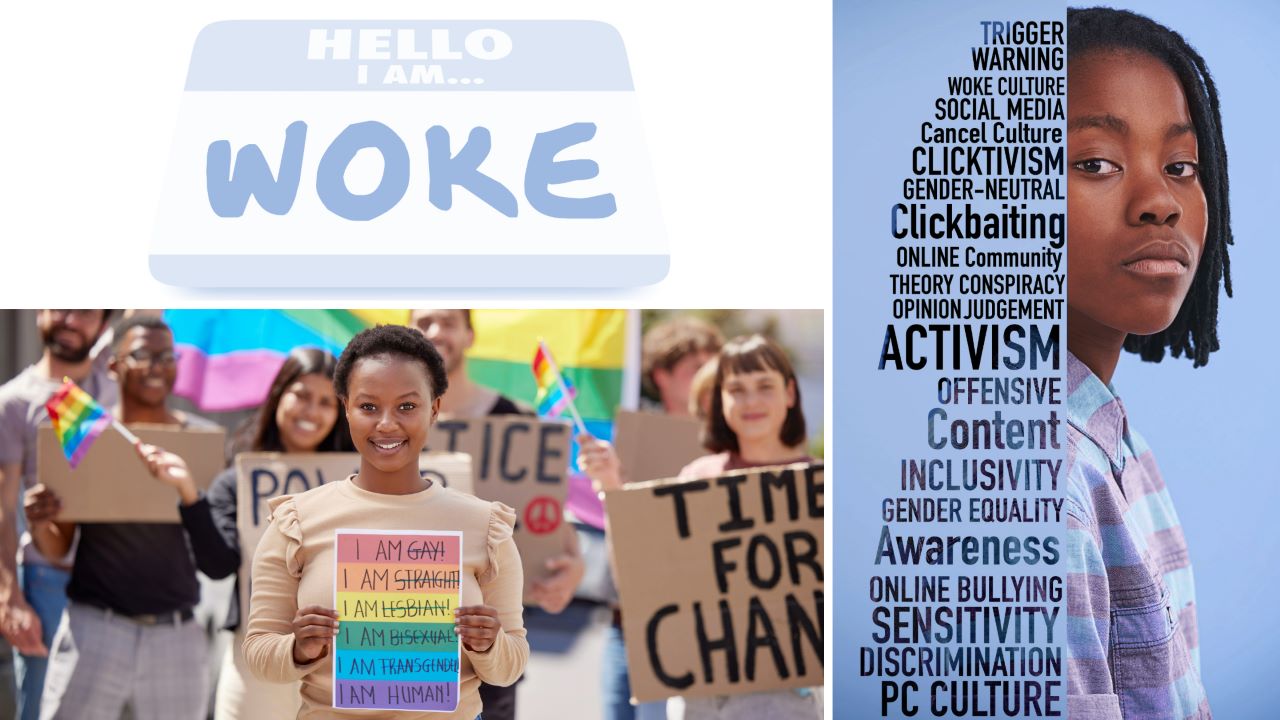Understanding the “Woke Mind”: A Comprehensive Guide
The term “woke” has become a lightning rod in contemporary discourse, sparking passionate debate and often leading to misunderstanding. This guide aims to provide a comprehensive and neutral understanding of the “woke mind,” exploring its origins, key tenets, criticisms, and impact on society. Whether you’re curious about this complex concept or seeking to clarify your own understanding, this article will provide a balanced and informative overview.
What Does “Woke” Mean? Unpacking the Origins and Evolution
The word “woke” originally emerged from African American Vernacular English (AAVE), signifying awareness, particularly regarding racial injustice and social inequalities. It gained prominence during the Civil Rights Movement, urging people to be conscious of systemic discrimination. However, its meaning has evolved significantly over time.
- Early Usage: Focused primarily on racial awareness and challenging discriminatory practices.
- Modern Usage: Expanded to encompass a broader range of social justice issues, including:
- LGBTQ+ rights
- Gender equality
- Environmentalism
- Economic inequality
- Intersectionality (the interconnected nature of social categorizations such as race, class, and gender)
The transition of “woke” from a specific call to action against racial injustice to a broader social and political ideology has contributed to its contested nature. Understanding this historical context is crucial to grasping the nuances of the term today.
Key Tenets of the “Woke Mindset”
The “woke” mindset is characterized by a specific set of beliefs and values. While not everyone who identifies with the term adheres to every aspect, several core tenets are commonly associated with it:
- Social Justice Advocacy: A commitment to addressing systemic inequalities and advocating for marginalized groups.
- Critical Consciousness: Encouraging critical examination of power structures, societal norms, and biases that perpetuate inequality.
- Identity Politics: Recognizing the significance of identity (race, gender, sexual orientation, etc.) and its impact on individual experiences and social interactions.
- Emphasis on Empathy and Inclusion: Promoting understanding and compassion for diverse perspectives and experiences.
- Challenging Dominant Narratives: Questioning traditional narratives and power structures that perpetuate social injustices.
- Activism and Social Change: Encouraging active participation in social and political movements to create positive change.
Understanding these core tenets is essential for deciphering the values and motivations of those who identify with the “woke” perspective.
Criticisms and Counterarguments: Examining the Other Side
The “woke” mindset has faced significant criticism from various perspectives. Some common criticisms include:
- Cancel Culture: The perceived tendency to ostracize individuals for expressing controversial opinions or making past mistakes.
- Overreach and Political Correctness: Concerns that the focus on social justice leads to excessive restrictions on speech and thought.
- Divisiveness: Accusations that the “woke” agenda promotes division and antagonism rather than unity.
- Hypersensitivity and Victimhood: Claims that “woke” ideology fosters excessive sensitivity and a focus on victimhood.
- Lack of Intellectual Diversity: Criticisms that the “woke” perspective stifles dissenting opinions and promotes conformity.
- Idealism vs. Pragmatism: Arguments that the focus on idealistic goals overlooks the complexities of real-world solutions.
These criticisms highlight the ongoing debate surrounding the “woke” mindset and its impact on society.
The Impact of the “Woke Mind” on Society
The “woke” movement has significantly impacted various aspects of society:
- Politics: Influencing political discourse, policy debates, and electoral outcomes.
- Culture: Shaping artistic expression, media representation, and cultural norms.
- Education: Driving curriculum changes, promoting diversity and inclusion initiatives, and sparking debates about academic freedom.
- Business: Influencing corporate social responsibility initiatives, marketing strategies, and workplace culture.
- Social Movements: Fueling activism and social change efforts related to various social justice issues.
Understanding these impacts is crucial for assessing the broader significance of the “woke” mindset in contemporary society.
Navigating the Complexities: A Balanced Approach
Approaching the “woke” debate requires a balanced perspective. Avoid generalizations and recognize the diversity of opinions within the movement. Consider the following:
- Context is key: Understand the historical and social context in which the term “woke” is used.
- Listen actively: Pay attention to different perspectives and engage in respectful dialogue.
- Challenge your own biases: Be aware of your own preconceived notions and assumptions.
- Focus on evidence: Support your arguments with credible sources and factual information.
- Recognize nuances: Avoid oversimplification and acknowledge the complexities of the issues.
Frequently Asked Questions (FAQs)
- What is the difference between “woke” and “social justice”? While related, they are not interchangeable. “Social justice” is the broader concept of fairness and equity, while “woke” is a specific ideology and approach that often incorporates social justice principles.
- Is “woke” inherently negative? No. The term itself is neutral. Its perceived negativity often stems from its association with certain behaviors, criticisms, or political agendas.
- How can I engage in respectful dialogue about “woke” issues? Listen actively, ask clarifying questions, avoid personal attacks, and focus on understanding different viewpoints.
- Is “woke” just a fad? The issues it addresses, such as social inequality, have a long history. Whether the “woke” label persists is uncertain, but the underlying concerns are likely to remain relevant.
- What is “virtue signaling” and how does it relate to the “woke” movement? “Virtue signaling” refers to expressing opinions or performing actions to demonstrate one’s good character or moral values, often without a genuine commitment to those values. It can be associated with the “woke” movement when individuals are perceived as prioritizing public displays of their values over substantive action.
Conclusion: A Path Towards Understanding
Understanding the “woke mind” requires navigating a complex and often contentious landscape. This guide has offered a comprehensive overview of its origins, tenets, criticisms, and societal impact. By approaching the topic with an open mind, critical thinking, and a willingness to engage in respectful dialogue, we can move beyond simplistic labels and foster a more nuanced understanding of this crucial aspect of contemporary society. The goal is not necessarily to agree, but to comprehend the diverse perspectives shaping our world.




